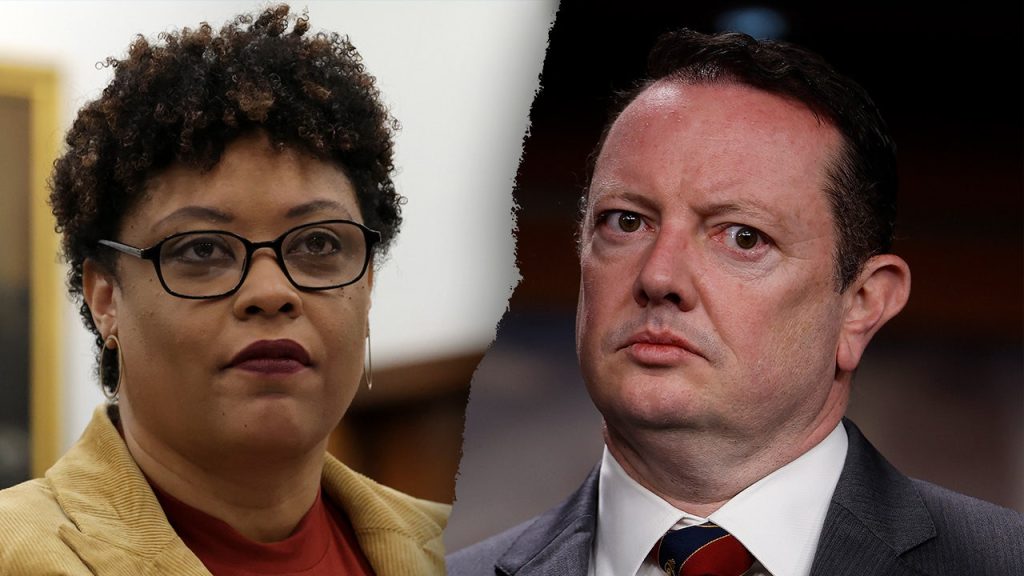A group of House Republicans, led by Rep. Eric Burlison, are demanding the White House provide a full accounting of U.S. taxpayer dollars going toward diversity, equity, and inclusion (DEI) programs. The lawmakers argue that it is essential to have this information as Congress begins work on fiscal year 2025 appropriations bills. They are seeking details on the names and funding allocations for any government DEI programs in fiscal years 2022, 2023, and 2024, as well as what is being sought for those efforts in 2025. They also want information on the total number of full- and part-time positions within the federal government related to DEI, as well as any job listings for open roles.
The letter, signed by nine other House Republicans, also requests information on potential programs in the planning or development stages that would address diversity, equity, inclusion, and non-merit-based hiring or management within each executive branch department and agency if implemented. Burlison accuses the Biden administration of attempting to embed DEI ideology into various aspects of the federal government, calling DEI programs divisive and wasteful. Amidst the ongoing debate over the importance and impact of DEI initiatives, this demand for transparency aims to ensure accountability and efficiency in the use of taxpayer dollars.
The lawmakers believe that DEI programs are a threat to American values and unity, as they perceive them to divide and pit Americans against each other rather than unite them. They argue that it is crucial to understand exactly how much taxpayer money is being spent on these programs to potentially defund them, alongside other perceived wasteful and divisive spending. This push for information and accountability reflects broader concerns within the Republican Party about the role and impact of DEI initiatives within the federal government and American society.
The call for transparency on DEI spending comes at a time when attitudes towards such programs are polarized, with some framing them as necessary steps towards addressing systemic inequalities and others as divisive and unnecessary. By requesting detailed information on the allocation of taxpayer dollars towards DEI efforts, the House Republicans are positioning themselves at the forefront of the debate over the role and impact of diversity, equity, and inclusion initiatives. The White House has been asked to provide the information, and it remains to be seen how the administration will respond to these demands for greater transparency and accountability.
The demand for a full accounting of DEI spending reflects broader Republican concerns about the Biden administration’s priorities and policies. By questioning the allocation of taxpayer dollars towards diversity, equity, and inclusion initiatives, the lawmakers are raising important questions about the effectiveness and efficiency of such programs. As Congress begins work on fiscal year 2025 appropriations bills, this information will be crucial in shaping decisions around federal spending and ensuring that taxpayer money is used in ways that align with the values and interests of the American people.
In a climate of increasing polarization and debate over issues of diversity, equity, and inclusion, the demand for transparency on DEI spending underscores the deep divides within American society and politics. The push for greater accountability and understanding of how taxpayer dollars are being used for these programs reflects a desire for clarity and efficiency in government spending. As the debate over DEI initiatives continues to unfold, the outcomes of this demand for information will shed light on the future direction of federal policies around diversity, equity, and inclusion.













